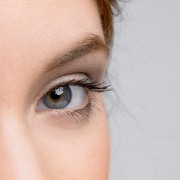 Photo: Getty Images
Photo: Getty Images
My aunt, now in her mid-70s, has been struggling with a disease that more commonly affects women than men and that afflicts roughly 1.3 million people in the U.S. each day. For years, I have seen how the pain and stiffness have increasingly slowed her down, as this chronic autoimmune disease continually brings inflammation to her joints. I am amazed at her continued perseverance, yet am disturbed by how much it can seem to compromise one’s lifestyle if not treated properly.
If you were affected by rheumatoid arthritis, would you know what to look for in terms of symptoms? Surprisingly, some of the most notable symptoms of this disease may not seem as obvious to the condition as one might think.
Rheumatoid arthritis can present in the form of flu-like symptoms, such as fatigue, overall weakness, fever, and diminished appetite. While these symptoms may be indicative of a viral or bacterial infection, if they are recurrent or last for an appreciable amount of time, you should seek the advice of a doctor to determine their actual cause.
Joint symptoms, such as pain, tenderness, or stiffness, are most commonly associated with rheumatoid arthritis. These are most prevalent in the morning upon waking or after sitting for extended periods of time. Frequently, the joints will appear swollen or even red and inflamed.
Rheumatoid arthritis can also affect the skin and the eyes. Because this disease is systemic in nature, symptoms can arise anywhere in the body. Its wrath is not just limited to the joints. Some people may notice that their complexion has become pale, and others may develop nodules, which are typically seen around the elbow joints. These small, painless masses, known as rheumatoid nodules, can indicate the severity of the disease.
Rheumatoid arthritis can also cause the eyes to become itchy, dry, or red. A discharge may occur and they may produce a burning sensation. Additionally, dry eyes, when paired with a dry mouth, can be a result of Sjogren’s syndrome, which causes a decrease in the production of tears and saliva. If such symptoms persist, be sure to consult your physician.
In its early stages, rheumatoid arthritis usually affects the smaller joints, such as those in the wrists, hands, ankles, and feet. As the disease gains momentum, the shoulders, elbows, hips, knees, jaws, and neck can become affected. In most instances, the affected joints occur on both sides of the body at the same time. The symptoms of rheumatoid arthritis may ebb and tide over time, as well, sparking in severity on occasion and then disappearing into periods of relative remission.
At this time, there is no cure for this disease, but the treatment options have greatly improved in the past few decades, affording individuals with an improved quality of life. The primary risk factors for rheumatoid arthritis include sex, age, family history, and smoking. Women are more likely to develop this disease than men. While it can begin at any age, it typically rears its head between the ages of 40 and 60. If a family member has the disease, this will increase your risk of it, as well. While your genes are not a definite red flag for developing rheumatoid arthritis, they can make you more susceptible to certain environmental factors that can increase your risk, such as infections from various viruses and bacteria. Smoking cigarettes also greatly increases your risk. By quitting now, you will significantly reduce your chances of being affected by this life-changing, yet manageable, disease.
Because I have seen how it has affected my aunt, I endeavor to keep a faithful eye on my body and to continue to be an advocate for my good health. If you believe you may have rheumatoid arthritis based on some of the information in this article, be sure to contact your doctor for a complete exam.
(Information for this article was found at http://www.livestrong.com/article/70888-early-warning-signs-rheumatoid-arthritis/ and at http://www.mayoclinic.com/health/rheumatoid-arthritis/DS00020/DSECTION=symptoms)






Add a CommentComments
There are no comments yet. Be the first one and get the conversation started!